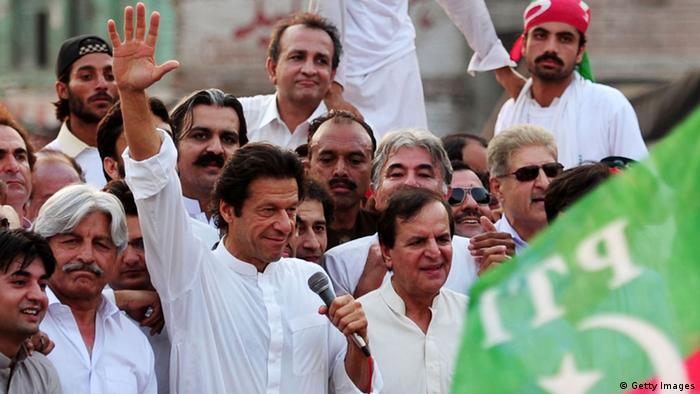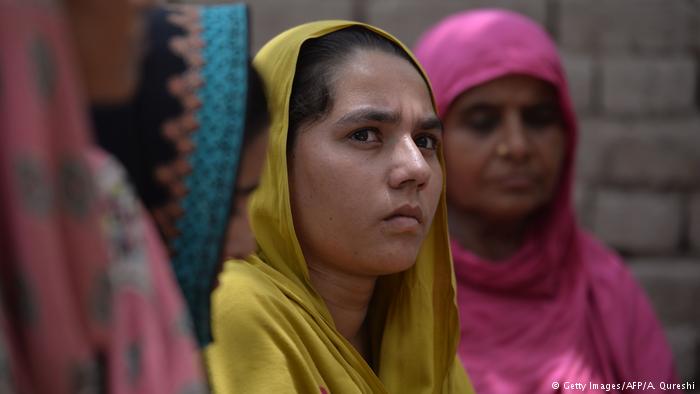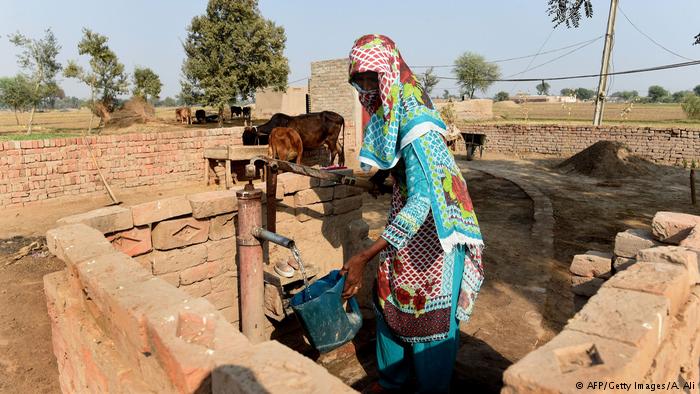The silent voters of Pakistan

Former cricketer Imran Khan will also contest in this year’s elections
This was my first voting experience during the local government Elections in Karachi in 2007. All I wanted to do was cast my vote to the party whose Mayor had performed extraordinarily during his tenure. Interestingly or unfortunately, the person demanding my ballot paper belonged to the very same party. Much to my dismay, I was forced to give my ballot paper in front of the staff that was present there, the personnel of security agencies and Election Commission of Pakistan. These institutions later claimed that the election process was totally “free and fair”. That made me so upset that I decided never to cast my vote again.
The polling station in question is in one of the upmarket urban areas of Karachi. It was not the only polling station where women were forced to give up their right to choose. Neither had it happened only in Karachi or the Sindh province. In the past, we routinely came across reports about women being stopped from voting during elections or having to cast their vote without their consent. The rural and far-flung areas of the country have experienced worse practices. In some parts of the country, cultural bars prevent the women to cast their votes. In some rural areas, village elders and some time influential politicians of the area decide to withhold women from voting.
Similar concerns have been expressed by some nongovernmental and semi-governmental organizations working for the women rights or voting transparency. According to the National Commission on the Status of Women (NCSW), there are threats that women voters can face in ‘42 no-go areas’ of Karachi, as well as the social restrictions on female voters in some parts of Khyber-Pakhtunkhwa (KPK) and Sindh. These threats are equivalent to denying them the right to choose their representatives. NCSW has demanded Election Commission of Pakistan (ECP) to provide a secure environment to female voters so that they can have the courage to come out from their homes and actively participate in the electoral process, thereby not allowing anyone else to determine who is entitled to vote or not. According to the NCSW chairperson Ms Khawer Mumtaz, there are reports that in some parts of KPK and in the interior parts of Sindh, women will not be allowed to vote in the upcoming general elections.
Alarming turnout and fewer women voters
Pakistan stands at 164th in terms of voter turnout among 169 countries that have had democratic elections over the past 50 years. This has been disclosed in a booklet jointly published by the National Database and Registration Authority (NADRA) and the Election Commission of Pakistan (ECP). According to this document, Pakistan with its average turnout of 45.3% has been only better than the countries like Egypt (45.1%) and Ivory Coast (37%). Mali is placed lowest on the list with 21.3% turnout.
Women make up nearly 50% of country’s population but their ratio in the registered voters’ list is just 43.5 %. Like the previous general elections, not many experts are very hopeful about the female turn-out in the general elections is to be held in May 2013. There are various reasons associated with a low voter turnout which could range from security concerns to sociological issues. In the 2008 general elections, 31 polling stations in Punjab saw only male voters. Not a single woman from 17 National Assembly constituencies of Punjab cast her vote. To avoid this situation, Free and Fair Election Network in Pakistan started a targeted voter education program in 564 polling areas of Pakistan.
Few Suggestions
Voting in Pakistan has never been a compulsion, a major reason for the low turnout. This could be improved through compulsory voting. The media should play more positive role to mobilize the voters and urge women to take a step to caste their vote. Public Service Messages and talk shows can make an enormous change.
A significant expected reason for the low women turnout in KPK could be a large number of displaced persons from the tribal areas, many of whom are currently residing in refugee camps. In one of the constituencies of Pakistan’s Tribal area Khyber Agency, over 90% of the population has been displaced. ECP should make polling arrangements for these people and particularly for women.
Not having computerized national identity cards (CNICs) by the large number of women in remote rural areas and urban slums is also a huge concern. This should be addressed.
Author: Unbreen Fatima
Editor : Manasi Gopalakrishnan






